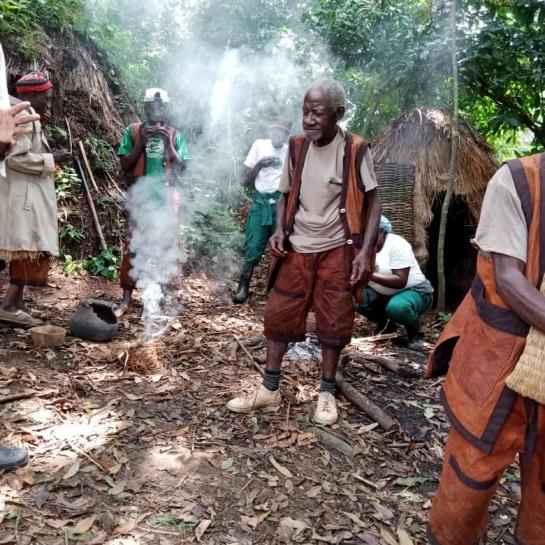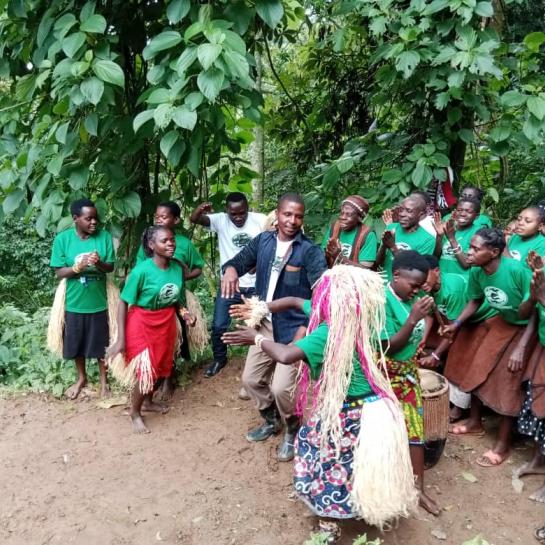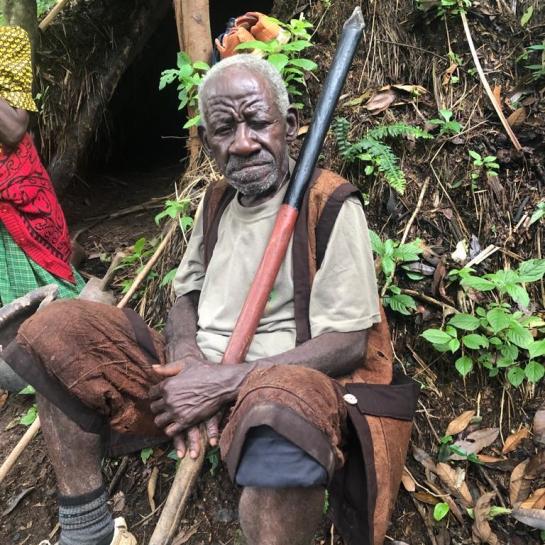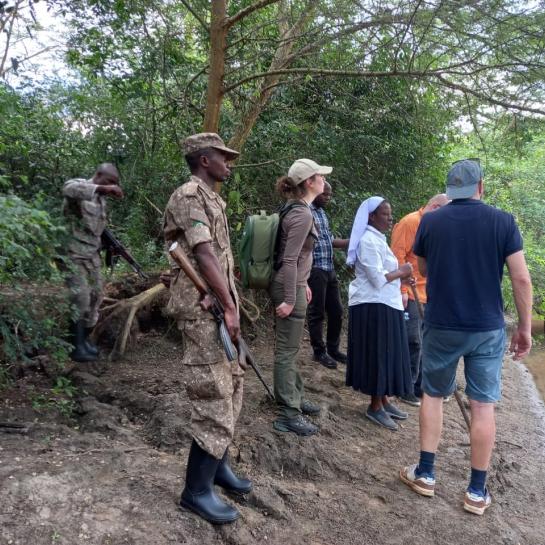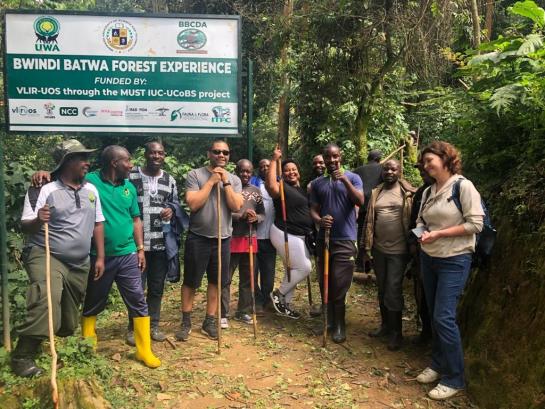
Project's website
For more information about the project, please visit the project's website:
VLIR-UOS IUC project "University as a Facilitator for Community-based Sustainable Solutions to Demographic Challenges in South-Western Uganda (UCoBS)"
Mbara University of Science and Technology (MUST) is implementing a 12-year project titled "University as a Facilitator for Community-based Sustainable Solutions to Demographic Challenges in South-Western Uganda" hereafter to as UCoBS. The project is coordinated by Charles Tushabomwe-Kazooba (local coordinator) and Gily Coene (Flemish coordinator) and has a budget of approx. 600,000 euro/year.
The UCobs project is one of the five global Institutional University Cooperation (IUC) partnerships funded by VLIR-UOS. The project is jointly implemented with the Flemish Higher Education Institutions and coordinated by the Vrije Universiteit Brussel (VUB). The project is overseen by the local steering committee, the Flemish steering committee, and the Joint steering committee. The project focuses on strengthening the MUST flagship Community Based Education, Research, and Service. The project is to be achieved through a reciprocal model using a participatory, innovative, multidisciplinary, multi-stakeholder, and gender-based approach blended with information communication and technology to achieve improved and sustainable households livelihoods in South-Western Uganda. These approaches aim at contributing to the redress of demographic challenges that have become a topical issue on the national and international agenda. The project is premised on addressing institutional capacity gaps and six community-oriented areas targeting the Most At-Risk Populations (MARPs).
Project thematic areas
In order to achieve the project outcome, the project is implemented under six sub-projects guided by various thematic areas:
i.Improved conservation practices of the environment and natural sources
ii.Improved mechanisms for climate change adaptation for sustainable food production for small-scale farmers
iii.Improved access and utilization of affordable energy technologies among the female-headed house-holds and the urban poor
iv.Improved sexual and reproductive health and rights of women, children and adolescents
v.Increased youth employability through skilling, innovations, experiential learning and technology transfer
vi.Improved institutional and community ICT capacity to access and utilize information.
The project thematic areas resonate with the VLIR-UOS main objectives: conservation of ecosystems, resilience to climate change, ensuring healthy lives, equitable and quality education, improved research, innovation, and entrepreneurship.
Sub-project I on Improved Conservation Practices for the environment and natural resources is led by Medard Twinamatsiko (local team leader) and Stefaan Smis (Flemish team leader). This sub-project focuses on improved conservation practices, environmental restoration and natural resource governance which are central in stimulating sustainable demographic dividends in South-West Uganda. Currently, there are poor conservation practices that have accelerated the rate of environmental hazards, loss of lives and property, and food shortages. There is evidence of degradation of major rivers of Nyamwamba, Lhubiriha, Nyamugasani, Rwizi, Ruhezamyenda and their catchments thus compromising local livelihoods.
There is an immediate need for restoration and redress of governance shortfalls (Twinamatsiko et al., 2015). The indigenous peoples like the Batwa who are the primary stakeholders of Protected Areas (PAs) continue to be left out due to historical injustices, with limited livelihoods options. The highlighted issues relate with the overall programme needs of integrating best practices into conservation and management of natural resources. Much as the university staff have done research in the area, the outputs remain faculty and individual-based with minimal multidisciplinary, participatory and institutional approaches. Some interventions done previously by MUST and partners need to be operationalised since they were short term. In its phase 1, the sub-project focuses on River Rwizi and River Ruhezamyenda for the river systems, Bwindi Impenetrable and Lake Mburo National Parks for the PAs and integration of Batwa and Bahima indigenous knowledge. Failure to address the stated challenges has a multiplier effect on climate change adaptation, affordable energy utilisation, appropriate cash crop production for improved household income and food security. This project addresses Ugandan National Development Plan (NCP) III objectives 1 and 4, strategies 4,6,16 and 18, and programmes 4, 5, 13 and 16. The project further feeds in SDG 6, 12, 13 and 15.
Team members of sub-project I:
Medard Twinamatsiko, Director of Innovations and Technology Transfer (CITT), MUST
Ronal Twongyirwe, Department of Environment and Livelihoods Support System, Faculty of Interdisciplinary Studies MUST
Cleophas Karooma, Department of Planning and Governance, Faculty of Interdisciplinary Studies MUST
Tom Ogwang, Department of Biology, Faculty of Science MUST
Grace Kagoro, Department of Biology, Faculty of Science MUST
Charles Muchunguzi, Department of Environment and Livelihoods Support Systems, Faculty of Interdisciplinary Studies MUST
Stefaan Smis, Department of Public Law VUB
Marijke Huysmans, Department of Hydrology and Hydraulic Engineering VUB
Kristof Titeca, Institute of Development Policy (IOB) UAntwerp
Jan Cools, Institute of Environment and Sustainable Development, UAntwerp
Jonas Schoelynck, Institute of Environment and Sustainable Development, UAntwerp
Anton van Rompaey, Department of Earth and Environmental Sciences, KULeuven
Constanza Parra, Department of Earth and Environmental Sciences, KULeuven



